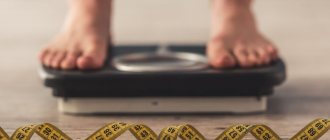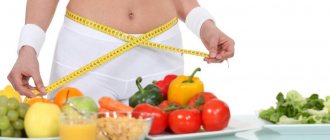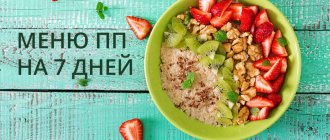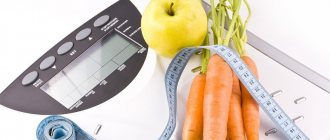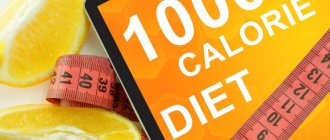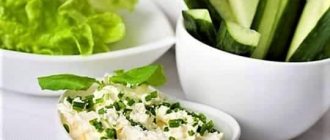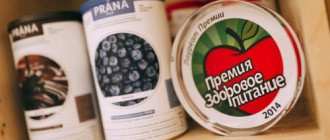The problem of excess weight is a pressing issue for many, but it can only be solved by combining physical exercise with dietary nutrition. If you seriously decide to take care of your body, lose weight and also create beautiful muscle definition, you need to try a protein diet. It is one of the most effective, and you don’t have to go hungry. Quite the contrary! The food will be quite filling.
Let us remember that proteins are the main building element of our body. In addition, they perform a lot of other tasks to support life, so their presence in a person’s daily diet is mandatory. Proteins consist of amino acids and come in plant and animal origin. Animal proteins are considered the most valuable, containing all the amino acids necessary for humans. Plant polypeptides are not as rich in amino acids, so their nutritional value is lower. With a protein deficiency, muscle mass begins to decrease, gradually being replaced by fat, immunity and resistance to stress decreases, fatigue sets in faster, and the condition of the skin, hair and nails noticeably worsens. Normally, a person needs 1 g of pure protein per day for every kilogram of weight.
The essence of a protein diet
The protein diet is based on the following postulates:
- simple carbohydrates are completely excluded;
- proteins make up 60% of the daily diet;
- fats (exclusively vegetable) are present in minimal quantities;
- Protein foods for better digestion are supplemented with a small amount of vegetables and fruits.
It is known that carbohydrates are the main sources of energy. When they are completely removed from the diet, an energy deficit occurs, and then the body begins to burn glycogen, and then fats.
- Food on a protein diet should be taken in small portions every 2.5–3 hours, 5-6 times a day, while doing fitness daily.
- Particular attention should be paid to the quality of products. Sausages, smoked meats and semi-finished products from the supermarket should definitely be excluded, because first-class meat and fats are not always used in their preparation. In addition, it includes all kinds of herbal and chemical additives - preservatives, dyes, flavors, etc.
- Preference should be given to lean varieties of meat, poultry and fish, because the abundance of lipids interferes with the complete absorption of protein. In this regard, it is better to avoid eating salmon, catfish, goose and duck, cod liver, pork and beef brisket.
Reviews and results of the diet
Reviews about the diet indicate that this type of nutrition is really effective. In a week you can get rid of 5-6 kilograms. Experts also do not ignore this method of losing weight. For example, Irina Kriksunova, the author of books on health and weight loss, says that the diet is not only effective, but also useful, as during the period of weight loss the body receives a large amount of useful substances.
However, many nutritionists do not agree with such conclusions, since it is believed that excluding complex carbohydrates from the diet has an adverse effect on the general condition of the body. For this reason, on a protein-vitamin diet, it is advisable to reduce activity, at least on vitamin days.
Contraindications and disadvantages of a protein diet
A protein diet gives excellent results in a short period of time, but it cannot be recommended for everyone because it is not balanced. Due to the low content of vegetables and fruits, the body does not receive enough vitamins, microelements and other beneficial substances necessary for a person. In addition, high amounts of protein in the diet can lead to acidification of the blood, as evidenced by a pH reading that drops below 7.35–7.45. In this case, the body requires more calcium, which begins to be removed from the bones. This threatens the development of osteoporosis. Therefore, a protein diet can be used for a maximum of a week, and then take a long break. Nutritionists for the most part say that such a diet can be applied only once every six months, and some experts adhere to a more strict approach: no more than once a year, because it creates a large load on the organs of the digestive system.
The following side effects may occur with a protein diet:
- Animal proteins take a long time to digest, and when carbohydrates and fiber are in short supply, this process becomes even longer. As a result, food lingers longer in the intestines, the processes of rotting and fermentation become more intense, which leads to flatulence and bad breath.
- The load on the kidneys increases, which can cause swelling in the legs and bags under the eyes, as well as on the liver.
- Due to slow digestion of food, constipation and exacerbation of gastritis and enterocolitis are possible.
- There may be surges in blood pressure, an increase in cholesterol levels is possible, and the risk of thrombosis increases.
- Feeling tired quicker and people become irritated more easily.
- In women, hormonal imbalance and ovarian dysfunction are possible.
From the above it follows that a protein diet is contraindicated in the following conditions:
- kidney and liver diseases;
- gout, diabetes, poor blood clotting;
- chronic diseases of the gastrointestinal tract;
- pregnancy and lactation.
It is also not suitable for older people, people with cardiovascular diseases, and teenagers.
Lovers of sweets will most likely find this diet difficult to tolerate. They may experience increased fatigue and nervousness due to carbohydrate deficiency. Often, after completing the course, they again take up high-calorie sweets, quickly gaining back the lost kilograms. But it will not be a burden for meat eaters.
The main advantage of the diet is a constant feeling of fullness, because protein foods take longer to process. In addition, protein foods help build muscle mass, so this type of nutrition is very suitable for bodybuilders to dry their bodies.
Why take vitamins while dieting?
The benefits of vitamin supplements during a diet are not only to maintain the health of the body. With a lack of certain substances, the burning of fat deposits in the body slows down. Vitamins stimulate the breakdown of fats, dull the feeling of hunger, maintain body tone and a good emotional state. Therefore, you should definitely take vitamin complexes during your diet.
Vitamin deficiency not only inhibits the process of burning fat cells, but can provoke weight gain. An exhausted body in this way tries to prevent further loss of nutrients.
With a strict diet, the condition of the hair, epidermal tissues, and nail plates inevitably suffers, and blood circulation in the hair follicles and skin layers deteriorates. Vitamins are essential to maintain a healthy appearance.
Hunger strikes and strict long-term diets are especially dangerous for the body. They quickly and significantly disrupt the vitamin balance, which is why hypovitaminosis develops. A few days after the development, hypovitaminosis manifests itself with the following symptoms:
- decreased physical and intellectual performance;
- nervous disorders;
- exacerbation of chronic diseases;
- deterioration in appearance.
Hypovitaminosis during a diet is prevented only by taking multivitamins.
Prohibited and permitted foods on a protein diet
A protein diet completely excludes the following foods:
- sweets (cakes, pastries, candies and other desserts, including natural honey);
- sweet fruits (banana, persimmon, dates, figs, apricots, grapes, watermelons);
- flour dishes, pasta and bakery products;
- fried and spicy foods, sauces, sausages, smoked meats, marinades;
- potatoes, legumes, cereals;
- animal fats;
- sweet drinks, soda, alcohol, store-bought juices.
Instead of them, the following should appear on your table:
- lean meat and poultry (veal, beef, rabbit, skinless chicken, turkey fillet);
- lean fish, seafood, canned fish in oil;
- offal dishes (liver, tongue, lungs, kidneys)
- raw, boiled eggs, omelettes;
- low-fat milk and fermented milk products;
- mushrooms;
- low-fat cheese;
- unsweetened pears, dried and fresh apples (preferably green), kiwi, citrus fruits, sour berries;
- tomatoes, cabbage, cucumbers, zucchini, greens;
- sugar substitutes;
- oatmeal, brown rice, buckwheat, bran;
- vegetable oil (linseed, olive);
- water – 1.5 liters per day, tea, coffee without sugar, fresh juices.
The weight of a serving eaten at a time should not exceed 250 grams, and the energy value of food per day should be 1200 kcal. The main emphasis is on meat, with fruits, vegetables and bran being auxiliary products. They contain fiber necessary for normal digestion, since protein foods cause constipation. Normally, a person also needs carbohydrates; with a protein diet, they are replaced with oatmeal or brown rice. The share of these products can be increased if fatigue has noticeably increased or dizziness has appeared. You can also take additional multivitamins due to the lack of them in your daily diet.
Rules for taking poly- and multivitamins during a diet
A multivitamin complex is a drug that you should take seriously. Let's look at the simple rules of use that you need to follow:
- Vitamins are organic substances, and for good absorption, take them with food, as well as minerals. The right time of day is morning. In the morning hours, the body is launched into activity.
- Consult your doctor before use. Do not self-medicate, as overdose is dangerous to health.
- Take any multivitamin with water only, like most medications. Milk, carbonated water, tea with sugar interfere with the absorption of microelements.
- If the instructions do not specify “chewable”, swallow the tablet whole, since when biting, some of the microelements are destroyed in the stomach.
Taking vitamins during a diet is important for health and achieving the desired result. It is worth noting that after finishing the diet, it is recommended to continue taking multivitamin preparations to saturate the weakened body with the necessary microelements. Having become familiar with vitamin complexes that improve metabolism and trigger the “mechanism” of losing weight, the process of losing excess weight will not harm your health.
Protein in foods
- When on a protein diet, it is recommended to prepare the simplest possible dishes.
- Meat, fish and poultry can be boiled, stewed, baked on the grill or in the oven with a minimum amount of vegetable oil, and also steamed.
- You should not get carried away with spicy seasonings and additives, or add too much salt or pepper to your dishes. For piquancy, you can add just a little mustard.
- Store-bought sausages are not suitable for a protein diet.
- Fermented milk products with low fat content - cottage cheese, hard cheeses - fit perfectly into a protein diet.
- For dinner, you can drink protein shakes, which are sold in sports stores as sports nutrition, especially during heavy physical activity.
List of the best multivitamins for weight loss
Nutritionists say that for effective weight loss you need to choose the right vitamin and mineral complex that accelerates the metabolism in the body. Only a specialist will be able to select the necessary drug that will help cope with dietary restrictions without harm to health, while improving weight loss.
The simultaneous use of several multivitamin preparations at once is strictly prohibited to avoid overdose and side effects. The presence of hypervitaminosis is a direct contraindication to the use of vitamins.
Let's look at multivitamin complexes that help reduce weight:
- Vitrum is a balanced vitamin and mineral complex that helps normalize the functioning of the cardiovascular, nervous, and immune systems. It is one of the best drugs that help you lose excess weight due to its beneficial effects on lipid metabolism. Activates the body's protective functions. You can buy the drug at a pharmacy. The price varies depending on the number of tablets from 450 to 2000 rubles. Indicated during periods of recovery from chronic diseases, sports, and unbalanced nutrition.
- Centrum is a multivitamin complex containing components aimed at improving metabolic processes. Has a good antioxidant effect. Positively affects the condition of hair, skin, nails. Strengthens bone tissue. Increases immunity.
- Megaslim is a fat-burning multivitamin complex developed in Switzerland. Systematic use allows you to reduce body volume and also gets rid of cellulite. Improves the functioning of the gastrointestinal tract, normalizes blood pressure, suppresses hunger.
- Duovit is a drug developed in Slovenia. Taking it while on a diet replenishes the supply of missing vitamins and minerals. Starts the metabolic process. Useful as a prevention of seasonal vitamin deficiency. Normalizes the functioning of the nervous system. Approved for use during pregnancy and breastfeeding, but only after consultation with your gynecologist.
- Selmevit is a complex developed in Russia. Has a positive effect on the mechanism of weight loss. Promotes maximum absorption of beneficial ingredients. Has a beneficial effect on the functioning of the sex glands. The price varies between 150-190 rubles for 30 pieces.
Sample protein diet menu for the day
The protein diet can be short-term (3-7 days) with three meals a day and long-term (usually 2 weeks) with split meals. The longer you stick to the diet, the more vitamins and microelements it should contain.
An approximate power supply diagram could be like this:
- 1st breakfast: yogurt without fillers (options: low-fat kefir, cottage cheese, two eggs), tea or coffee;
- 2nd breakfast: green apple (orange, grapefruit, kiwi);
- lunch: chicken (fish, veal) with vegetables, brown rice, buckwheat, oatmeal (about five spoons);
- afternoon snack: natural yogurt (low-fat cottage cheese, kefir, fermented baked milk, low-fat cheese);
- dinner: fish (veal, seafood, chicken) with vegetable salad, tea, fresh juice diluted with water.
Most often, a protein diet is kept for 5-7 days, less often – 14 days. It is extremely rare that if the body tolerates such nutrition easily, it is followed for a month, but doctors strongly recommend not to experiment. A protein diet menu for a week usually contains a small amount of vegetables and fruits, but as its duration increases, their amount should increase. And if you feel very tired and drowsy, it is better to increase the amount of carbohydrates. Therefore, the protein diet menu for 14 days usually contains more oatmeal, brown rice, buckwheat and vegetables.
Sample menu for the week
A diet on a vitamin-protein diet for weight loss can be built in 2 ways, let’s look at each of them.
Two in two
In accordance with this regimen, you will need to eat protein foods for 2 days and vitamin foods for 2 days. The diet is divided, at least 5 meals per day. So, the menu for the week will consist of dishes.
Protein days:
- For breakfast: 2-3 hard-boiled eggs and 100 g of cheese;
- First snack: 100 chicken and a glass of low-fat yogurt or kefir;
- Lunch: meat broth and a piece of meat 150 g (suitable varieties: rabbit, beef, turkey);
- Second snack: cottage cheese 100 g;
- For dinner, seafood: mackerel fish or trout, 150 g.
If you don't like cottage cheese and cheese or can't eat them, replace them with lean meat or eggs.
Vitamin days:
- Breakfast: several fruits or 300 g fruit salad. Using yogurt as a dressing is prohibited;
- Snack: unsweetened fruit: apple, pear, kiwi;
- Lunch: vegetable salad. Use vegetables with low starch content, use olive oil for dressing;
- Second snack: fresh berries or a couple of unsweetened fruits;
- Dinner: steamed or stewed vegetables.
On vitamin days you need to minimize physical activity; on protein days, on the contrary, do fitness, go for a run, and so on.
Types of protein diets
There are many options for protein diets. All of them belong to the low-carbohydrate group and are based on the same principle - more protein, less carbohydrates.
- One of the most popular options is the egg diet. It is relatively easy to tolerate because the daily diet is quite balanced. It is also expected to avoid fats and limit carbohydrates, but fruits and vegetables are allowed in fairly large quantities. Eggs, chicken or quail, are eaten boiled or baked in the oven as an omelet.
- The basis of the Japanese diet is seafood, fish, rice and soy. Carbohydrates and fats are present, but in limited quantities. Salt, sugar, baked goods made from white wheat flour are completely excluded. You are also allowed to eat cabbage, eggplant, zucchini, carrots, tomatoes, lean beef, chicken, eggs, unsweetened fruits, low-fat dairy products, and whole grain bread.
- Another type of protein diet is cottage cheese. In this case, the emphasis is on fermented milk products and greens.
- The Dukan diet initially allows skinless chicken, turkey, fish, low-fat dairy products, a spoonful of oat bran per day, and after a few days vegetables are introduced.
Duration
Nutritionists do not recommend living for more than a week without carbohydrates and fats, as this negatively affects the functioning of the stomach and some internal organs. Despite this, there is a protein-vitamin diet for 10 days and even 14. However, with such long-term weight loss, you will need to include some fatty and carbohydrate-containing foods in the menu at least once a day. It can be:
- a teaspoon of sugar or honey for breakfast tea;
- a teaspoon of flaxseed oil for dressing vegetable salad for lunch or afternoon snack;
- 100 grams of pasta, rice or buckwheat for dinner.
So, when choosing a vitamin and protein menu for the week, you will not go wrong with the results. It will be much more difficult to lose weight in this way for a longer period - 10, 14 days, or even a month. And, of course, it is better to familiarize yourself in advance with what will happen to your body during these periods.
Interesting fact. The vitamin-protein diet is one of the few that allows salt. True, in very minimal quantities.
How to get out of a diet
You need to exit any diet gradually so that the lost kilograms do not return after a short time. First of all, you should not dramatically increase portion sizes. Previously excluded foods can be added little by little, but flour and sweets should be the last thing in the daily diet. It is better to increase the amount of fruits and vegetables, as well as cereals. You need to continue to eat lean meat, fish, and dairy products. Alcohol is allowed no earlier than 5 days after switching to a regular diet.
The main advantage of the protein diet is that it allows you to lose 3–5 kilograms in a matter of days without fasting, but it should be used very carefully and not for long.
Vitamins for a low-carb diet
A low-carb diet is considered a strict diet for weight loss. Therefore, with this type of diet, from the first days it is necessary to provide the body with vitamins and mineral elements from pharmaceutical sources.
You can buy any multivitamin and mineral complexes to improve the general condition of the body. But it is prohibited to take dietary supplements and herbal remedies for burning fat while on a low-carbohydrate diet. These agents are able to suppress the reactions of the breakdown of fat molecules.
